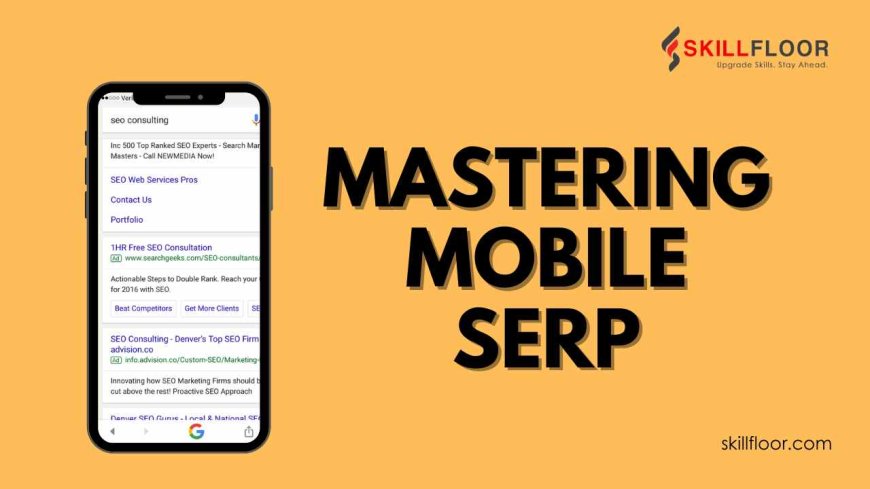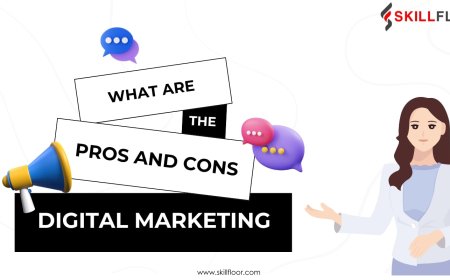Mastering Mobile SERP: Essential Strategies
Learn essential strategies to master mobile SERP. Optimize your site for mobile search, improve rankings, and ensure it's mobile-friendly to capture more organic traffic.

In the modern day where mobile comes first, Mastering Mobile SERP: Essential Strategies is essential for organizations looking to improve their online presence. It is now necessary to optimize for mobile search due to the growing dependence on smartphones. Focusing on mobile SERP feature components that go beyond standard search results, such as knowledge graphs, local packs, and highlighted snippets, is essential to this optimization. These elements are essential for drawing in visitors and increasing traffic. Businesses can greatly increase the effectiveness of their mobile SEO efforts by understanding and using mobile SERP features. Content strategies should incorporate relevant keywords like "mobile optimization," "search engine visibility," and "mobile SEO" with ease. This strategy makes sure that companies stand out from the competition in addition to showing up in search results. Maintaining a strong presence in the always-changing mobile search field through commitment to these essential strategies gives your organization a competitive advantage.
Understanding Mobile User Behavior
You must first understand your mobile audience's mindset in order to figure out the mobile SERP code. Mobile consumers, in comparison to desktop users, are frequently on the go and look for quick fixes and seamless experiences. Here are some things to think about:
-
Intent and context: When using a mobile device, people frequently search for specific things, such as news or a nearby cafe. It is essential to comprehend the context of these searches in order to deliver timely and pertinent material.
-
Quick Interactions: Users of mobile devices anticipate quick and seamless interactions. Quick load times, simple navigation, and uncomplicated transactions are necessary for a satisfying user experience.
-
Local Searches: A sizable portion of searches on mobile devices are local. Users often search for local companies, events, or services. It's critical to use efficient local SEO tactics to draw in this demographic and boost exposure.
Mobile-Friendly Website Design
It is essential to have a mobile-friendly design instead of just a nice-to-have one. Here are some tips to make sure your website is ready for mobile optimization:
-
Responsive Design: Responsive design refers to the ability of your website to smoothly adjust to any size screen, from desktops to smartphones, offering a consistent user experience on all platforms.
-
Touch-Friendly Elements: Taking into account the average fingertip size, design buttons and links large enough for effortless tapping to prevent inadvertent clicks.
-
Readable Text: To avoid frustrating users with small text, select font sizes that are simple to read on small displays without the need to zoom in.
Local SEO and Mobile SERP
Making your business visible to locals is the main goal of local SEO. You want your company to appear in the results when someone uses their phone to look up something nearby. To more effectively reach your local audience, you can connect your strategies with the Mobile SERP (Search Engine Results Page) as follows:
-
Google My Business: Make sure your listing is optimized and claim it. Make sure the name, address, phone number, and hours of operation of your company are correct and up to date.
-
Local Keywords: Make sure your content includes local keywords. Consider the terms that people could use to find services in your area, such as "best pizza in [your city]".
-
Customer comments: Invite pleased clients to provide gratifying testimonials. Reviews have a big influence on your visibility on mobile SERP and are a crucial component in local search rankings.
Optimizing Page Speed
Because it guarantees that your website loads quickly and gives users a better experience, optimizing page speed is essential. Here's how to improve the speed at which your website loads:
-
Minimize Code: Make your HTML, CSS, and JavaScript files smaller. Code that is organized and efficient speeds up loading times and improves the user experience.
-
Compress Images: Reducing the size of photos can help your website load more quickly. Utilize tools for image compression to minimize file sizes without compromising quality.
-
Taking Use of Browser Caching: Permit browsers to save specific components of your website so users won't have to reload them each time they come.
Content Optimization for Mobile
Making text smaller is only one aspect of creating mobile content; another is adapting it to mobile users' screens. Employing bullet points, subheadings, and short paragraphs will help you keep your material clear and simple to scan. Include eye-catching pictures and videos, but make sure they load quickly. Additionally, take into account the trends in voice search by tailoring your content to sound natural and conversational in the way users ask questions. This improves the usability and attractiveness of your content on mobile devices.
Mobile Keywords Optimization
To score effectively in mobile search engine results, mobile keyword optimization is essential. This is how to do it correctly:
-
Focus on Short-Tail keywords: Because typing on a small screen is convenient for mobile users, shorter search queries are frequently used by them. Aim for highly relevant short-tail keywords for your article.
-
Use Conversational Keywords: Pay attention to how people naturally communicate and use such terms in your writing. Mobile queries frequently resemble spoken language.
-
Local and "Near Me" Keywords: To draw customers searching for services or businesses nearby, utilize local keywords and phrases like "near me."
Utilizing Mobile Apps for SERP Enhancement
Additionally important to improving your exposure on mobile SERPs are mobile apps. Here's how to use them to your advantage:
App Indexing: Make sure search engines can index the material in your app. Users can now access your app's content straight from search results, thanks to this.
Deep Linking: To link particular pages in your app to pertinent search terms, use deep links. This might make the material in your app easier to find.
App Store Optimization: To increase your app's visibility and draw in more downloads, make sure your listing in app stores is optimized. Make use of eye-catching descriptions, pertinent keywords, and excellent images.
Monitoring and Analyzing Performance
Making data-driven decisions and closely monitoring your success are essential for being a true mobile SERP expert. Here's how to do it:
-
Use Analytics Tools: Keep an eye on your mobile traffic, user activity, and search engine performance by utilizing tools like Google Analytics and Search Console.
-
Monitor Mobile-Specific data: Pay special attention to mobile-specific indicators, such as average page load time, click-through rate from mobile searches, and mobile bounce rate.
-
Regular Audits: Evaluate the mobile functionality of your website on a regular basis. Seek opportunities to enhance usability, speed, and content relevancy.
Understanding Mobile SERP is essential for increasing online presence and maintaining competitiveness in today's mobile-first environment. You may effectively increase your mobile search visibility by understanding the behavior of users on mobile devices, optimizing your website for speed and local search engine optimization, and utilizing mobile apps and AMP. Continued success in the changing mobile search market will be ensured by consistent monitoring and flexible methods.






























































